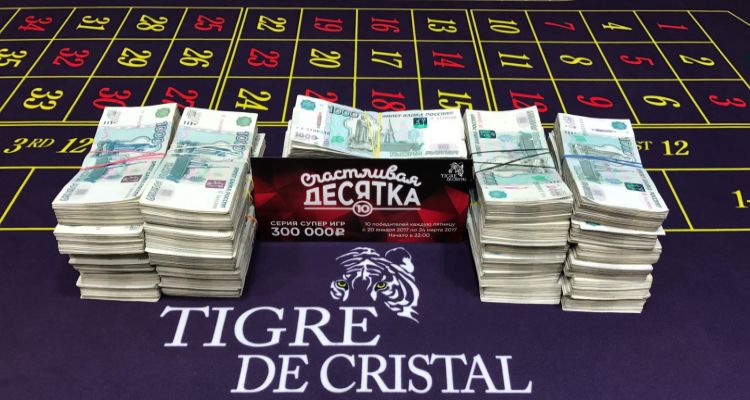Although it may appear as if the first casino in Russia’s Primorski Krai, Tigre de Cristal near Vladivostock, may have gotten off to a slow start, that may be a matter of perspective.
GGRAsia is reporting that Daiwa Securities Group Inc. has completed a 40-page report on Summit Ascent Holdings Ltd.’s casino operations there and found gaming volumes to be in line with those of casinos in the nascent years of Macau’s rise to the top of the world gambling market.
The first of several integrated resorts to be built in the Primorye Integrated Entertainment Zone, Tigre de Cristal is serving a market that is far from well-served. Where Macau draws mainly from southern China, the Siberian operations of Lawrence Ho’s Summit Ascent draw from the north.
As the pioneer in a frontier market, analysts Jamie Soo and Adrian Chan of Daiwa write, the return on invested capital (ROIC) is typical. According to the report, Tigre de Cristal had “reached Sands Macao’s first full-year average monthly gaming volumes in its first 10 months of operation.” Tigre de Cristal officially opened in November 2015, after a soft launch on October 8.
Summit Ascent reportedly laid out US$172 million for the first phase of the project and the analysts estimate that “Tigre de Cristal would generate property EBITDA of HKD160 million (US$20.6 million) and HKD350 million in its first and second full years of operation, respectively, representing a first-year ROIC of 11 percent and second-year ROIC of 25 percent,” according to the report.
Sands China Limited, a subsidiary of Las Vegas Sands Corp, laid out US$265 million to open Sands Macao in 2004 and generated a 100% return on capex before the end of its first year.
The brokerage projects that gross gaming revenue (GGR) in the Vladivostok market could reach US$150 million this year and estimated that the potential exists for US$1.3 billion by 2020.
At least 7 more full scale integrated resorts are expected to open in the zone before 2020 which could create a “cluster effect”.
The brokerage noted that over 20% of China’s high-net-worth individuals live in northern China but only about 6% of visits to Macau in 2014 came from the north.
Further elements of the report on GGRAsia indicated other favorable factors for the gaming zone with over 100 million potential customers within a 3 hour flight of the resort include GGR levies ten times lower in some instances, operational costs including salaries as much as 60% lower, the strong decade-long track record of Lawrence Ho’s success in Macau and elsewhere, and that Summit Ascent will be able to leverage Ho’s Melco junket and customer relationships to scale its VIP accordingly.



